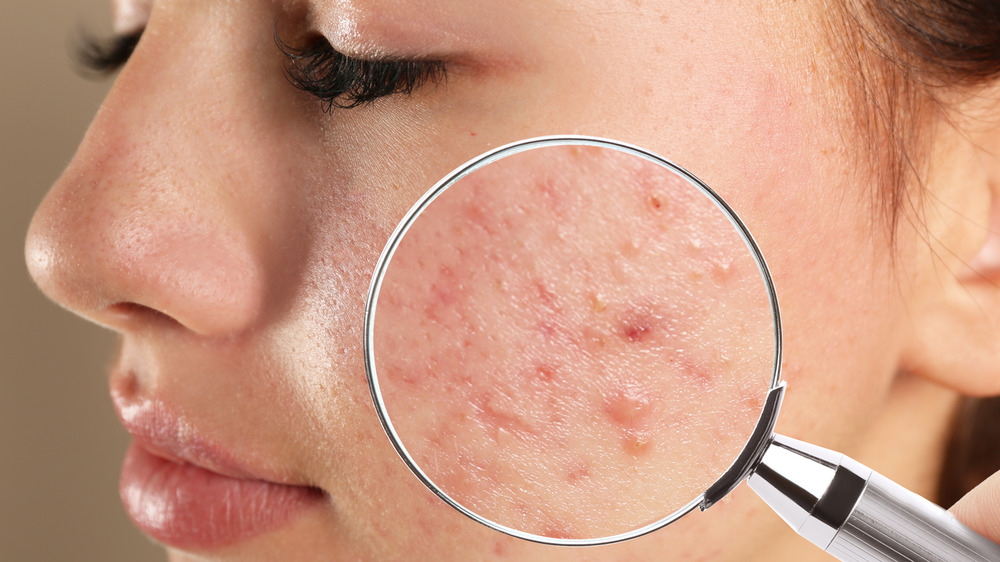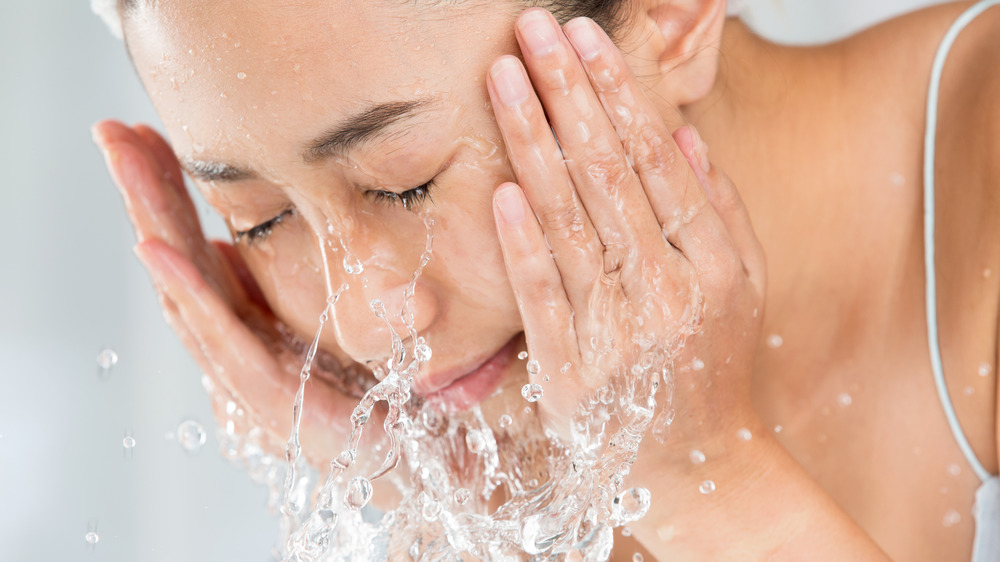Why Acne And Pimples Aren't The Same Thing
If you've looked at your face in the mirror and been frustrated by the eruptions staring back at you, it might help to know you're not at all alone. 50 million people in the US have acne at the moment, and a whopping 85 percent of us will deal with it at some point in our lives (via MD Acne).
Even though they're often used interchangeably, the terms 'acne' and 'pimples' do not reference exactly the same thing. Knowing a little about these terms can help determine how to best treat your skin. In a nutshell, acne is a disease of the skin that affects the follicles and oil glands, and can include blackheads, whiteheads, papules (small, tender, reddish bumps), pustules (papules that include pus on top), nodules (painful lumps deep below the skin's surface), and cysts (via Healthline). A pimple is simply a small pustule or papule — in other words, it is one of the symptoms of acne.
Gently washing with an acne-fighting cleanser may help
Several of the symptoms of acne listed above, including blackheads, whiteheads, and pimples, have their start in a follicle that gets clogged with sebum (oil), dead skin cells, and bacteria. This grimy situation can be triggered by hormonal changes, certain skin products and medications, andeven genetics. Morgan Rabach, M.D., dermatologist and cofounder of LM Medical NYC, told Glamour, "Acne has a genetic component to it, with children mimicking what their parents had, so we can't control it completely."
Even though hormones generally stabilize by about age 20, for many, some level of acne can continue well into adulthood, and can cause physical scarring as well as psychological problems. Thankfully, there are things that can be done to help.
-
Plenty of over-the-counter cleansers include acne-fighting compounds. Choose one and gently wash your face, using warm water.
-
Don't squeeze or pick at blemishes. Avoid touching your face, either with your hands or phone, as much as possible.
-
Although the evidence is not conclusive, avoiding low-fat dairy products and processed foods with a high-glycemic index (like white bread, pasta, and sweets), may help reduce acne (via The Knot).
-
If acne persists, consider seeing a dermatologist. A professional can help determine the exact type of acne, and suggest prescription medications that may be able to help.


